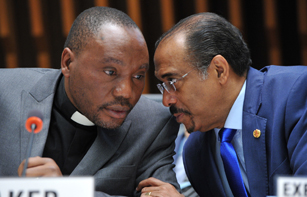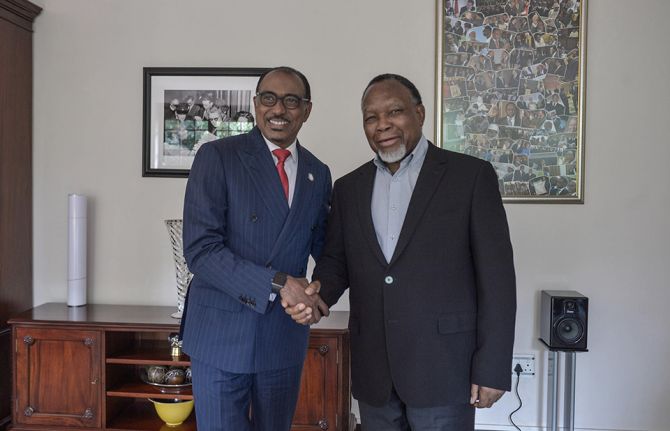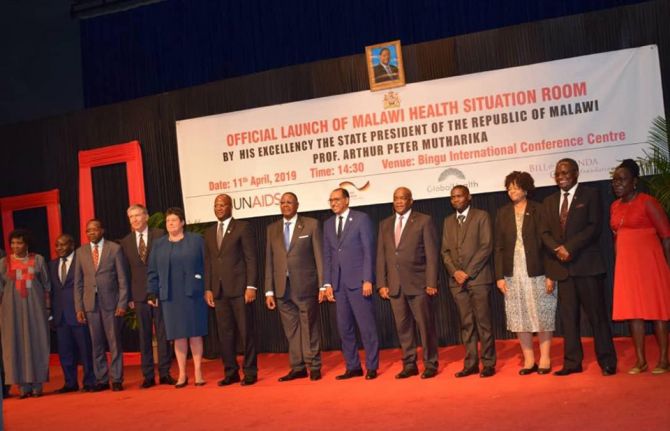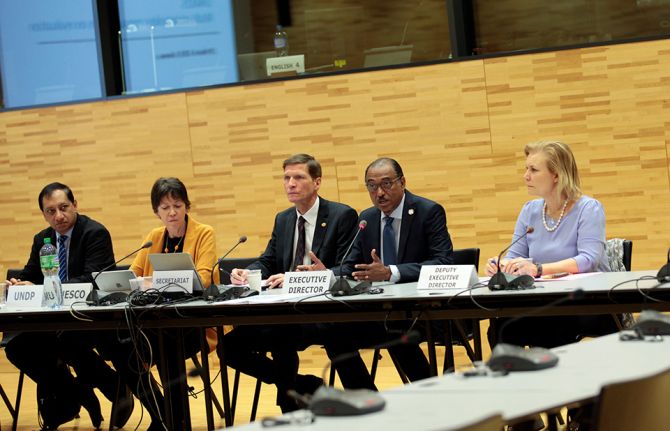
Feature Story
UNAIDS board promotes non-discrimination of people affected by HIV
13 December 2012
13 December 2012 13 December 2012
(From L to R) Keynote Speaker Reverend MacDonald Sembereka from Malawi and UNAIDS Executive Director Michel Sidibé interacting during the Thematic Segment on Non-Discrimination at the 31st PCB.
Credit:UNAIDS/V.Martin
UNAIDS Programme Coordinating Board (PCB) met in Geneva this week. In his report to the board the Executive Director of UNAIDS Michel Sidibé called on members to maintain commitment for the 1000 days leading to the 2015 target deadline and opportunities post 2015.
“Clearly, we are doing the right things, and are doing them faster smarter and better,” said Mr Sidibé. “But make no mistake––the epidemic is not over. We have an agenda to complete and must embrace the opportunity––not only to achieve an AIDS-free generation, but also to rewrite the future of global health and development.”
A stronger response for women and girls
UN Women participated in the board meeting for the first time after becoming a Cosponsor of UNAIDS last June. Emphasising the urgent need to empower women the Executive Director of UN Women Michelle Bachelet said, “Women must be equal citizens; have a life free from violence; have equal access to and control over productive resources; have greater access to education, information and prevention; and their work in the care economy must be counted, valued and supported.”
The board members also recognised the need to strengthen the response for women and requested that UNAIDS works to ensure that women and networks of women living with HIV are meaningfully engaged in all stages of planning, implementation and monitoring of the AIDS response.
Non-discrimination
The third day a special thematic discussion on non-discrimination took place, moderated by BBC journalist Nisha Pillai. Speakers underlined that HIV-related discrimination is all too often experienced by people who are already marginalized and vulnerable, and can be devastating. Acting as a major obstacle to HIV testing, prevention and treatment, the goal of zero discrimination is essential to advancing the response to HIV.
Discrimination is alive and kicking in our societies – a painful and silent killer. If we don’t address the vice of discrimination the three zeros will remain a pipe dream.
Reverend MacDonald Sembereka
Mr Sidibé highlighted the importance of achieving zero discrimination: “We cannot continue to address discrimination in the same way we have until now. The people we are not reaching today are the most difficult to reach because they feel they can’t come forward for fear of discrimination.”
Mr Sidibé welcomed Reverend MacDonald Sembereka from Malawi as the keynote speaker for the segment. A civil and human rights activist living with HIV, Reverend Macdonald has experienced HIV-related discrimination first hand, “Discrimination is alive and kicking in our societies – a painful and silent killer. If we don’t address the vice of discrimination the three zeros will remain a pipe dream,” he said.
He gave a moving speech on his personal struggles with dealing with discrimination, and how society should support, rather than ostracize, people affected by HIV. “The blame for continued discrimination lies with all of us––when we fail to challenge cultural practices that exclude people, ignorance that drives people from families villages and communities, old and archaic rules that lead to men who have sex with men being denied basic health care services, religious beliefs that hold people hostage to rigid interpretations sacred texts and that deny women access to education and encourage child marriage and ingrained prejudice that allows sexual violence to flourish.”
Following Reverend Macdonald’s speech, the moderator invited participants to engage in an open discussion on the response to HIV-related stigma and discrimination in different sectors, including health care, employment, education, justice and the community.
The board agreed that the theme of the next PCB would be HIV and young people. India was elected as the next Chair of the PCB with Australia as Vice-Chair and Congo as Rapporteur.
Speeches
Related
 Keeping up the momentum in the global AIDS response
Keeping up the momentum in the global AIDS response

24 April 2019
 Malawi launches its health situation room
Malawi launches its health situation room

12 April 2019
 Learning lessons on evaluation
Learning lessons on evaluation

02 April 2019
